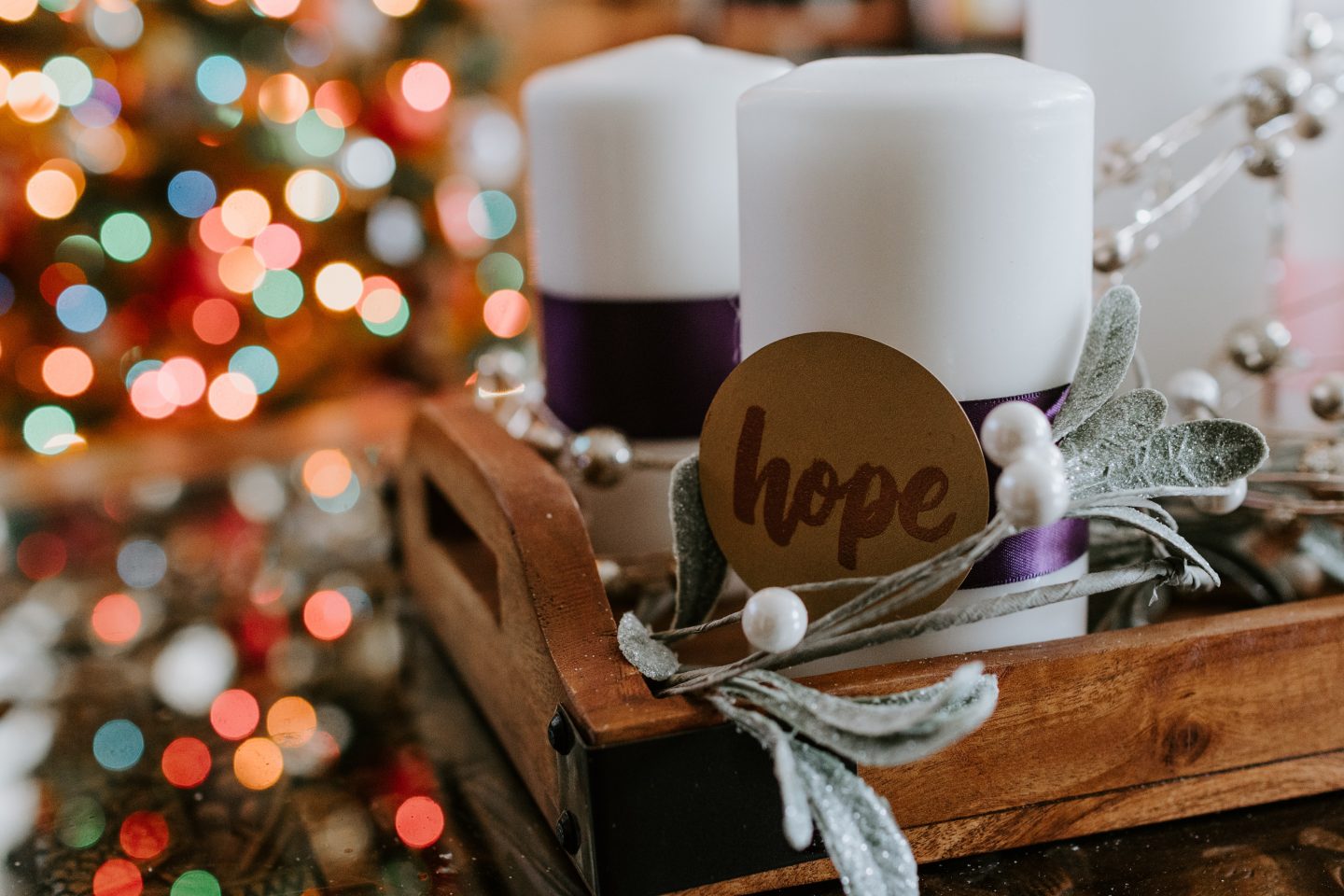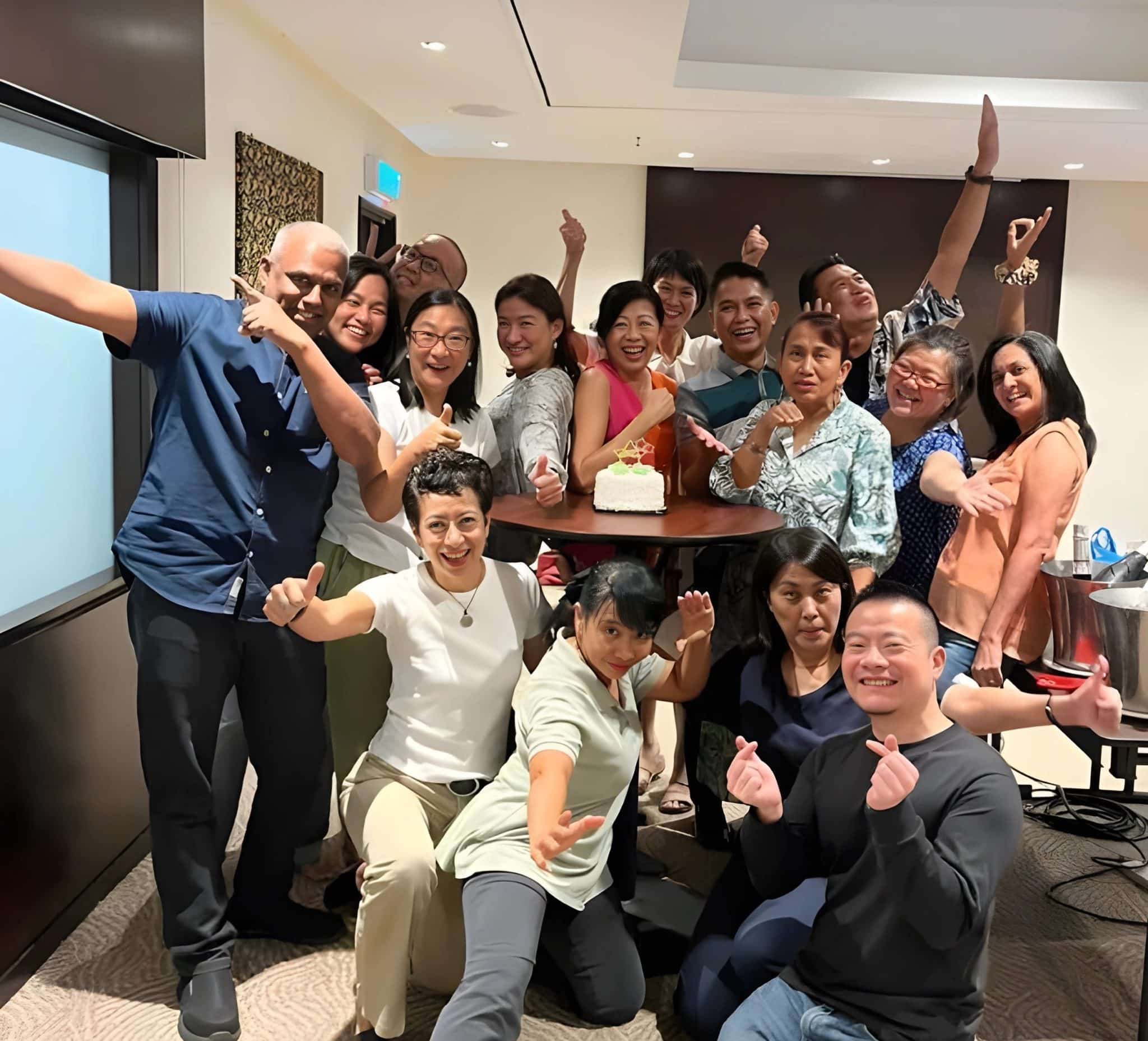Let your hopes and fears meet the Christ of Christmas
Salt&Light wishes all readers a Blessed Christmas!
Peter Chao // December 25, 2020, 5:08 pm

"We hope because we can imagine the future we like, but we cannot control that future," says Peter Chao. Photo by Kelly Sikkema on Unsplash.
The World Health Organisation declared the spread of Covid-19 a pandemic on March 11, 2020, calling it a “once-in-a-century health crisis, the effects of which will be felt for decades to come”.
Almost a year in, over a million people have succumbed to the virus and the death toll is still rising. In attempts to break the spread of the virus, lockdowns have left cities eerily vacant and still. Hollowed emporiums of commerce and empty streets have become signatures of fear and anxiety.
As we stumble into Christmas, the haunting melody of a well-loved carol (O Little Town of Bethlehem) wafts through the fusty air of dread, unveiling a piercing ray of hope: “Yet in Thy dark streets shineth, the everlasting light, the hopes and fears of all the years are met in Thee tonight.”
You hope, you live
All of us cherish hopes and dreams as well as harbour fears in our hearts. We cannot live without hope.
Our spirits are made for hope like the way our hearts are made to love, our brains are made to think and our hands are designed to make or do things. Our hearts are drawn to hope as a bird is drawn to the sky.
If you keep hoping, you would keep living. Stop hoping, and you die, at least on the inside.
Nelson Mandela was imprisoned for 27 years by a racist regime in South Africa. But his spirit was kept alive by hope. As the day of his freedom drew close, his only daughter was allowed to come and see him. When she came, she carried with her the grandchild that Mandela had never seen. She had waited for the child’s grandfather to name her.
Our spirits are made for hope like the way our hearts are made to love, our brains are made to think.
Mandela wrote in his memoirs: “I don’t think a man was ever happier to hold a baby than I was that day.”
Mandela named her Zaziwe, an African word for “hope”. Mandela explained: “During my years in prison, hope never left me and now it never would.”
In a landmark book, Man’s Search for Meaning, Viktor Frankl tells about Jews in the second world war who kept hoping for the day they would be released from their concentration camps when anyone can see they would die right there. But they kept hoping and waiting.
The guards were drumming into their heads every hour that they were pigs, vermin and scum of the Earth. But as long as they remembered they were children of God, they had hope. And as they hoped, they waited for release.
Those who hoped, walked erect. They talked lively talk together. They made music. They kept up their humane civilities with one another to show that their doomed lives had more point and purpose than the lives of the guards who would murder them.
We hope because we desire to be fulfilled.
Hope made the difference. You hope, you live.
We hope because we can imagine the future we like, but we cannot control that future. A child hopes for gifts but has no way of securing that gift on his or her own. We imagine a bright future for our children and ourselves. We do all we can to make that future possible, but we know we have no ultimate control over the future.
So, the best we can do is to hope. What are some of your hopes today?
That the economic hardship you are enduring will not be so difficult next year? That your losses will be cut, and that you can make profits again so you could provide for your family? That you will be able to keep your job or find a new job? That you will be healed of the deep wound in your spirit, or an ailment in your body? That your children will turn out well and do you proud?
We hope because we desire to be fulfilled.
Meeting Christ
This Christmas, may your hopes meet Christ. Not that all your expectations will turn out as you hope, but your deepest longings will be met, your soul will be fulfilled, and your mind can find sense even when life goes wrong.
When we stake our lives on His promises, we have this hope as an anchor for our soul.
When I have a deep longing that I cannot fulfil myself, I am thankful to be introduced to someone stronger, more capable, more competent or wiser than I. His resources are greater than mine and he also cares for me. Then, I feel assured that I will be helped.
This Christmas, may your hopes meet Christ. Because He is able to do immeasurably more than all we ask or imagine. (Ephesians 3:20)
Above all, He keeps His promises to us. He has promised His presence when we feel alone. He has promised the strength when we are weak. He has promised us guidance when we are lost.
When we stake our lives on His promises, we have this hope as an anchor for our soul – firm and secure. When our hopes are met in Him, we are secure, stable and confident. Wouldn’t you desire that?
As the Christmas carol expresses: “Our hopes … for all the years are met in Thee tonight”.
What have you hoped in your heart for the longest possible time? Let your hopes meet the Christ of Christmas.
Wonderful Counsellor
The flip side of hope is fear. Because we have no power to bring to reality all our deepest hopes, we harbour fears that things may go wrong. When something tragic happens to us, we say that our worst fears are realised. Sometimes, these fears overwhelm and paralyse us.
What are your fears today? What are you anxious about?
Retrenchment? How to fulfil your financial obligations? Your health? An impending medical procedure or a fear of disease? That someone will reject your love? Personal failure with serious consequences?
Let your fears meet the Christ of Christmas. He understands your feelings and empathises with you.
Christmas reminds us that we do not have a high priest who is out of touch with our reality. He’s been through weakness and testing, experienced it all – all but the sin. So, let’s walk right up to Him and get what He is so ready to give. Take the mercy, accept the help. (Hebrews 4:15-16)
Christmas reminds us that we do not have a high priest who is out of touch with our reality.
In the Christmas narrative, we meet Simeon, who was waiting for the Consolation of Israel. For 400 years, God had been silent while His people suffered. Simeon embodied the hopes and fears of his people under Roman bondage, hoping for reprieve and fearing reproach. He was anticipating Israel’s Consolation the way we long for relief in distress.
Consolation is the same word for “comforter” or “counsellor”. Jesus is the first Counsellor, as was foretold, His name shall be called “Wonderful Counsellor”. (Isaiah 9:6)
When Simeon lifted baby Jesus in his arms, he cried out: “My eyes have seen your salvation, a light of revelation to the Gentiles and for glory to your people Israel.” (Luke 2:30)
All Simeon’s hopes and fears were met in Jesus.
Bring your fears
Are you in a situation where the bottom has fallen out and you are free-falling in fear? You have absolutely no control of your downward spiral and no one can help pull you up. If you were to take one more step, you would fall into a black hole of infinite nothingness where you would be beyond the reach of God?
God is not vulnerable… The darkness does not blind or confuse Him.
When you think you have fallen out of God’s presence, you will find that He is there after all. Or do you sense that you are being increasingly enveloped in darkness?
Darkness is the experience of being vulnerable, unprotected and confused. You do not know who is hiding in the shadows. You don’t know which way to run.
But, God is not vulnerable. The darkness does not blind or confuse Him.
Are you fearful because you are vulnerable, hurt and unable to protect yourself from the relentless blows to your esteem, well-being, to all that is important to you? Do you fear you have been forsaken by God; that you are not good enough for Him, that you do not deserve anything but His judgement?
Bring your fears to Christ today.
Joy, peace and love
Sweeping across Germany at the end of the second World War, Allied Forces searched farms and houses looking for snipers. At one abandoned house, almost a heap of rubble, searchers with flashlights found their way to the basement.
I believe in God even when He does not speak.
There, on the crumbling wall, a victim of the Holocaust had scratched the star of David. And beneath it, in rough lettering, this message: “I believe in the sun even when it does not shine; I believe in love even when it is not shown; I believe in God even when He does not speak.”
The Christmas carol “O Little Town” reminds us: “No ear may hear His coming, but in this world of sin where meek souls will receive Him still, the Dear Christ enters in.”
Amidst the pain that stabs our hearts, the sorrow that brings the tears, the disappointment that crushes our hope, the Christ of Christmas still enters into open hearts that will receive Him. He still brings the blessings of Christmas – joy, peace and love – into believing hearts today.
May that be your experience this Christmas.
This devotion was first run in Peter’s Ponderings by Peter Chao, Founder of Eagles Communications, and is republished with permission.
Reflection
This Christmas, are you in a situation where the bottom has fallen out and you are free-falling in anxiety and fear?
You may be feeling vulnerable, but God is not vulnerable. The darkness does not blind or confuse Him.
Bring your fears to Christ today. He is listening.
We are an independent, non-profit organisation that relies on the generosity of our readers, such as yourself, to continue serving the kingdom. Every dollar donated goes directly back into our editorial coverage.
Would you consider partnering with us in our kingdom work by supporting us financially, either as a one-off donation, or a recurring pledge?
Support Salt&Light



